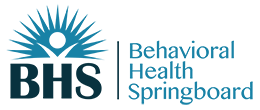
NC Children with Complex Need Ask the Expert Series 2024-2025
This interactive session will help participants increase their knowledge of behavior support planning in addition to exploring ways to integrate positive behavior strategies into these plans in the support of dually diagnosed youth. Our subject matter expert will support participants with identifying key components of behavior support plans as well as provide a space to address questions and talk through examples for use of these plans supporting children with complex needs.
All training sessions will occur in 2 parts for a total of 3.5 hours
Part one: 12:00pm to 2:00pm EST
Part two: 12:00pm to 1:30pm EST
|
|
||
|
|
Modality: This is a two-part training consisting of a 2 hour long instruction, followed by a 1.5 hour long Q&A portion at a later date. Both parts will be conducted virtually via Big Blue Button
Registration: This training is free to attend but pre-registration is required. Registrants will be required to submit at least one question at the time of registration to ask the expert during the Q&A portion of the training. Questions will be reviewed and approved before the training. The training is funded by the NC Department of Health and Human Services, Division of Mental Health, Developmental Disabilities, and Substance Use Services, as a project of the Children with Complex Needs statewide administration. The capacity for each training will be set at 80.
Target Audience: This training series targets behavioral health professionals, LME-MCO staff, medical professionals, nursing professionals, school staff, state, local child serving agencies, and parents of youth who are dually diagnosed with mental illness and intellectual and developmental disabilities.
Inclement Weather Policy:
Any announcements regarding changes to the schedule due to inclement weather will be posted on https://bhs.unc.edu. Registered participants will also be notified by email.
ADA Statement:
If you require any of the auxiliary aids or services identified in the Americans with Disabilities Act in order to participate in this program, please email us at bhs-support@unc.edu or call us at (919) 843-6083 after completing registration.
Contact for Questions:
For questions, further information, or concerns, contact us via email at bhs-support@unc.edu or call us at (919) 843-6083
Confirmation Notices and Certificates of Completion:
Registration is free, but participants must pre-register for each webinar. We will confirm your registration by email. Closer to your training date, you will receive an email that includes your Big Blue Button link. Successful completion includes being logged in and virtually participating for the entire webinar. Within 7 days of the conclusion of the event, you will receive an email notifying you that the evaluations and certificates are ready. The email will include a link to https://bhs.unc.edu where you can login using the username and password you chose at registration. Once you have logged in, you will see the training titles listed under "My Courses" on the left side. After clicking on the link, you will be taken to another page where you can click the link to the event evaluation. Once you have completed and submitted your evaluation, you can click on the link to access the Certificate of Completion. You will be able to print or save your Certificate as a PDF document.

Children with Complex Need Ask the Expert Series 2025
Title of Training: ACEs Uncovered: Understanding Trauma and It’s Impacts on Dually Diagnosed Youth
Part 1 of the training session will provide an in-depth understanding of how Adverse Childhood Experiences (ACEs) impact youth with dual diagnoses (e.g., developmental and behavioral disorders). Drawing from both scientific research and lived experience as a parent and advocate, the presentation will explore how trauma affects brain development, emotional regulation, and overall behavior in children with complex needs. The session will highlight the connection between ACEs, trauma, and dual diagnoses, offering a framework for supporting these children effectively.
In the follow up session (part 2) participants will engage in an ECHO-style dialogue with invited panelists, furthering the discussion on trauma-informed practices and how they can be tailored for youth with dual diagnoses. The session will focus on resilience-building strategies, community support, and practical approaches for engaging with families and educators to foster a holistic, inclusive approach to care. Through lived experiences and professional insights, this session will empower participants to better understand the complexities of dual diagnoses and implement strategies that promote healing and resilience.
Speaker: Amy Dickey
Training Dates & Times:
Training dates: February 6th, 2025 Part 1 Total Hours: 2 hours
Part 1 Training Time: 12:00pm – 2pm
Training dates: February 20th, 2025 Part 2 Total Hours: 1.5 hours
Part 2 Training Time: 12:00pm – 1:30pm
Please Note: This training will occur as a two-part series. You must attend both sessions in this series to receive a certificate with contact hours.
Learning Objectives:
Define Adverse Childhood Experiences (ACEs) and their long-term effects on brain development.
Explain the relationship between trauma and dual diagnoses in youth with complex needs.
Recognize the neurobiological effects of trauma and how they contribute to complex behaviors in children.
Identify evidence-based strategies to support youth with dual diagnoses in a trauma-sensitive, family-driven manner while reducing compassion fatigue and building systemic support
Agenda:
Part 1:
12:12:10pm - Welcome/introduction of speaker/housekeeping items
12:10-1:45pm - Presentation/instruction
1:45-2pm - Q& A/closing remarks
2:00pm - Conclusion of training
Part 2:
12:00-12:05pm- Welcome and housekeeping
12:05-12:20pm- Short review/presentation of topic
12:20-1:30pm- Q&A/closing remarks
1:30pm- conclusion of training
Title of Training: Supporting Children with Complex Needs Who Have Experienced Sexual Violence/Commercial Trafficking
This training is intended to provide perspective on the lived experience as well as the multidimensional strengths and needs of children and adolescents with complex needs who have encountered commercial sexual exploitation. With this perspective, caregivers and stakeholders in systems of care can be empowered to resource and support these youth to embrace effective, sustainable, empowering healing and resiliency.
Speaker: Dr Tiona Praylow
Training Dates & Times:
Training dates: February 13th, 2025 Part 1 Total Hours: 2 hours
Part 1 Training Time: 12:00pm – 2pm
Training dates: February 27th, 2025 Part 2 Total Hours: 1.5 hours
Part 2 Training Time: 12:00pm – 1:30pm
Please Note: This training will occur as a two-part series. You must attend both sessions in this series to receive a certificate with contact hours.
Learning Objectives:
Identify risk and protective factors that increase/decrease vulnerability to commercial sexual exploitation.
Highlight effective intervention strategies and important treatment considerations.
Discuss strategies for prevention of commercial sexual exploitation of children with complex needs.
Locate resources within the local systems of care to ensure holistic, restorative, trauma cognizant responses to commercial sexual exploitation of youth.
Agenda:
Part 1:
12:12:10pm - Welcome/introduction of speaker/housekeeping items
12:10-1:45pm - Presentation/instruction
1:45-2pm - Q& A/closing remarks
2:00pm - Conclusion of training
Part 2:
12:00-12:05pm- Welcome and housekeeping
12:05-12:20pm- Short review/presentation of topic
12:20-1:30pm- Q&A/closing remarks
1:30pm- conclusion of training

Amy Dickey is a passionate advocate, educator, and consultant committed to empowering families and professionals who support youth with developmental disabilities (I/DD), mental health challenges, and trauma. Drawing from her lived experience as a mother and professional, Arny is dedicated to fostering equitable access to trauma-informed care and advocating for a Free and Appropriate Public Education (FAPE). Adversity birthed an advocate, and Arny credits her growth and success to lessons learned through hardship. Her transparency and resilience inspire others to embrace a growth mindset and advance trauma-informed practices that promote inclusion, healing and resilience. Arny is a trained Family Partner and certified expert in trauma and resilience, Arny uses her unique blend of personal insights and professional expertise to train caregivers, educators, and community stakeholders on addressing systemic barriers and creating meaningful change. Through her leadership at local, state, and national levels, she champions family-driven decision-making, inclusion, and collaboration to support children with complex needs.
 Dr. Tiona Guess Praylow is a Columbia, SC native. She was inducted into Phi Beta Kappa at Duke University and graduated summa cum laude. She received her dual MD, MPH medical degrees from Duke University School of Medicine and University of North Carolina at Chapel Hill respectively. She completed residency and fellowship in General and Child and Adolescent Psychiatry at the UNC Hospitals, and is double-board certified. Dr. Praylow practices from her T-CHIRP framework, Trauma Cognizant Heart Inspired Restorative Practice, focused on cultural humility, holistic healing, and exuberant embodiment in her role as Medical Director at Three Rivers Midlands Psychiatric Residential Treatment Facility and her coaching and consulting agency Resiliency Empowerment Strategies (REST). T-CHIRP teaches that recovery from trauma is a holistic mind-body-spirit experience that amplifies all the Colors of Our Song Inside, which is the title of her chil heal. She continues to cultivate strategies for empowering resiliency through Heart Math Biofeedback, the Safe and Sound Protocol, Emotional Freedom Technique, breathwork practices, and neurofeedback. She is passionate about being a voice for youth emerging from traumatic life experiences serving as a subject matter expert for community agencies and schools. She is an innovation igniting speaker who inspires and equips audiences to invest in and cultivate their Mental WELLth, a rich physical, emotional, and spiritual life experience, through simple science-backed, heart inspired strategies.
Dr. Tiona Guess Praylow is a Columbia, SC native. She was inducted into Phi Beta Kappa at Duke University and graduated summa cum laude. She received her dual MD, MPH medical degrees from Duke University School of Medicine and University of North Carolina at Chapel Hill respectively. She completed residency and fellowship in General and Child and Adolescent Psychiatry at the UNC Hospitals, and is double-board certified. Dr. Praylow practices from her T-CHIRP framework, Trauma Cognizant Heart Inspired Restorative Practice, focused on cultural humility, holistic healing, and exuberant embodiment in her role as Medical Director at Three Rivers Midlands Psychiatric Residential Treatment Facility and her coaching and consulting agency Resiliency Empowerment Strategies (REST). T-CHIRP teaches that recovery from trauma is a holistic mind-body-spirit experience that amplifies all the Colors of Our Song Inside, which is the title of her chil heal. She continues to cultivate strategies for empowering resiliency through Heart Math Biofeedback, the Safe and Sound Protocol, Emotional Freedom Technique, breathwork practices, and neurofeedback. She is passionate about being a voice for youth emerging from traumatic life experiences serving as a subject matter expert for community agencies and schools. She is an innovation igniting speaker who inspires and equips audiences to invest in and cultivate their Mental WELLth, a rich physical, emotional, and spiritual life experience, through simple science-backed, heart inspired strategies.
NC Children with Complex Needs Training Series
The University of North Carolina at Chapel Hill School of Social Work has been approved by NBCC as an Approved Continuing Education Provider, ACEP No. 6642. Programs that do not qualify for NBCC credit are clearly identified. The University of North Carolina at Chapel Hill School of Social Work is solely responsible for all aspects of the programs. Successfully completing the course (both part one and two) qualifies for up to 3.5 contact hours.
The completion of this course has been approved by the North Carolina Specialist Addiction Professional Practice Board for up to 3.5 credit hours.
